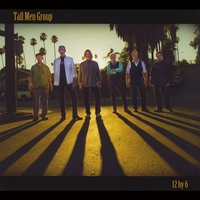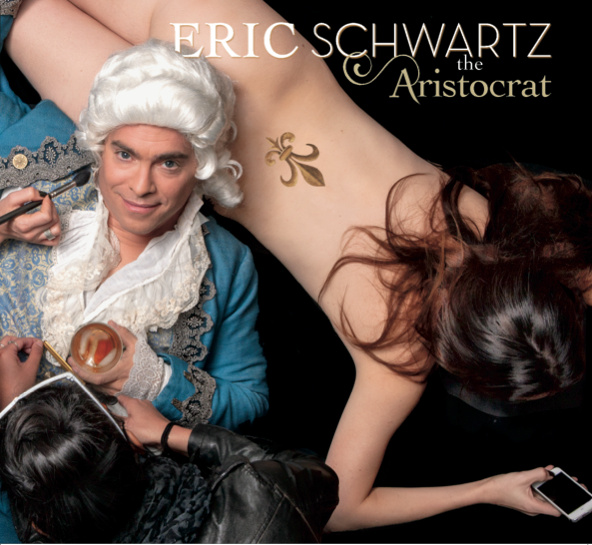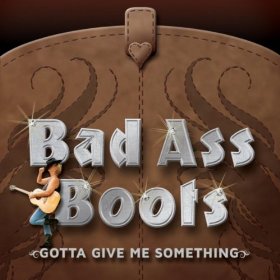
Amigo
Might Could
This is what it’s all about – a great band of good musicians who know how to
write funny songs, sad songs, clever songs, songs that rock and roll. There
is no gimmick here: Amigo is the real thing. They’ve got a rootsy, down home
sound – folk and rock like Wilco and the Band, and like those groups,
composed of singers of much heart and soul. When they harmonize, it’s not
perfect like the Eagles, it’s more like real people, and you want to sing
along. They use funny country music conceits like “Where have all the bad
times gone?” but in their hands, it works. They sing of “that old junkie
two-step and cheap domestic stuff” and pull you in, you want more. Clean
pedal steel lines underscore the funky soul, the jaunty vocals. Acoustic
textures throughout are delicate, and set up these stories cinematically,
especially the great “Old Testaments and Nail Bombs” which follows the “wise
blood” in the veins of church-goers, and gives us some keen insight into
both the dark and light of the faithful. “Murder of Crows” is presented in
great multitudes of harmony against a cool and chugging guitar groove, and
takes you out on a journey that is mysterious and foreboding – both happy
and scary at the same time, a dynamic and dimensional effect. “Easy Rider”
is like a party with Jackson Browne, a mariachi band and lots of tequila.
The Hammond organ, wed with mariachi horns, is infectious. This is
unexpected and serious songwriting rendered by a band capable of vast
extremes, the kind of band that could be around a long time. I hope they
are.
Videos by American Songwriter

The Single Wing and a Prayer by Keith Piper with David Piper
Written mostly by Keith Piper, this was completed this year by his son
David Piper. The elder Piper was the head football coach at Ohio’s Denison
University for a long time, from 1954-1992. His record of success is legend,
as was his use of his signature play, the single wing offense, which is
affectionately explored throughout. His son, David Piper, is a celebrated
songwriter in Los Angeles, one half of the Trough Records duo Piper-Grey.
He’s also a teacher, and a former football player himself, at Ithaca under
the late Hall of Fame coach Jim Butterfield. So this is more than a
tremendous labor of love, which it is, it’s also an informed one. Piper the
son has a lot of love and respect for his father’s play and signature moves,
which are related here as intricately and lovingly as classic Julia Child
recipes. Even those of us mostly unfamiliar with the intricacies of this
game are entranced by the union of precision and passion here, the art and
science of this thing which unfolds physically, but is keenly calculated.
In David’s introduction, he explained his motives, that his father hoped to
provide future generations of coaches with the single wing wisdom, which is
both a method and a philosophy of the game, so that any coach could lead his
team to triumph as he had some 200 times. But this is more than a play book:
Piper the son wove his own memories and anecdotes, and those of many others
he collected, around the technical stuff, as well as instilled all of it
with rich textural photographs and diagrams on every page, so what you’re
getting here is the full vision of a man’s life. Football is the focus, but
it’s bigger than that, it’s about dedication, focus, passion, fearlessness
and love. It’s also a gift to David’s mother and Keith’s wife, Philomena, to
whom the book is dedicated, as a way of preserving the beauty and magic of
this wonderful life, in which she was always present: “[She] missed only two
games,” wrote David, “in my father’s entire 39 year career.” If you love
football, if you love wisdom and poetry intertwined, if you love the love of
a family: father-mother-son – this is a place you should visit. You’ll be
glad you did.
All proceeds will go toward the Denison University Football Program.
[www.thesinglewingandaprayer.com Purchase at Denison University
bookstore: http://www.denisonbookstore.com and look for The Single Wing and a
Prayer. Cost is $38.95 plus shipping.]

Tall Men Group
12 by 6
Really wonderful. Sure, you put six great singer-songwriters together who
also happen to all be fine musicians, you would expect something good. But
this is beyond good – this is great. These guys sound so happy and inspired
making music together that they created a masterpiece. The Tall Men Group is
Marty Axelrod, Ed Tree, Severin Browne, Jeff Kossack, John Stowers and Jimmy
Yessian. Call it superfolk: these are six individuals who have been writing
and singing their own great songs for a long time, and making great records.
And they have worked together – producing, singing and/or playing on each
other’s albums. But this is one of those happy instances, not unlike Crosby,
Stills, Nash & Young, when separate, unmatched pieces fit together to make
something bigger than any of the parts, something magical. That’s what we
got here – the sound of these voices together is transcendent, so that any
time the whole group sings a line in harmony there’s a kind of musical
momentum created- something compelling and hypnotic.
Ed Tree’s a celebrated producer, and Jeff Kossack’s well-known as a studio
wizard; those two seemed to have led the technical aspects, so that the
sound here is delightful. Each instrumental note rings sweetly, and all the
voices and lyrics are warm and clear. They take turns singing each other’s
songs, starting with Tree’s beautifully haunting “Chaco,” which is a great
place to begin. It’s all desert mystery and romance, and memories from this
life and previous ones. It’s a heavy place to start, but from there we go in
many directions. Severin’s “She’s A Funny Girl” boasts one of his signature
complex and chromatic melodies , wed to a poignant and genuine lyric.
“Marie,” by Ed Tree, resounds like a modern classic. Memphis-bound and
bluesy, it’s a slinky and mysterious noir romance that’s about the present
and the past at the same time, ideally etched by Axelrod on organ. Kossack’s
“Lessons of My Father” is earthy and bluesy, replete with gritty acoustic
slide guitars and soulful vocals, great story-telling that ties together the
generations with funny wisdom, about fearlessness and “leading with example
in reverse.” “Bar Band” by Severin also starts with the lessons from a
father, how music can buoy a life, and launches this rockabilly rave-up
about the place where dreams meet life. And “No Time Left At All,” by Jimmy
Yessian, is a beautiful ballad of urgent affirmation, floating on great
organ and Dylan-like harmonica. This is an impressive and inspirational
album; each Tall Man brought his A-game to the proceedings, fine songs and
spirited singing. This is an album about enduring spirit, about friendship
and faith. Long live the Tall Men.

Jeff Gold
Streets Cracked
Windyapple Records
A modern classic. Timeless songs lovingly rendered by an exceptional artist.
Not only does this contain a remarkable chain of finely etched songs sung by
a singer of great soul and focus, it’s one of the best sounding albums to
come along in a long time. Whereas many records we hear reduce the sound of
an acoustic guitar to a slim ghost of itself, this goes the other direction
and gives us acoustic guitars as rich as orchestras, with all the
dimensions, inflections and frequencies singing with shining clarity,
warmth and depth. Guitars singing low and high, sparkling, shining. Jeff
Gold’s long been beloved on the L.A. and New York folk scenes as not only a
gifted singer-songwriter, but one of the best finger-style guitarists
around, and this album celebrates his fluid flair for rich guitar
expressions, on which each track is based.
An acolyte of the late great New York songwriter Jack Hardy, Gold walks in
the footsteps of his mentor to create modern folk songs – elegant work which
reflects the triumphs, failures and mysteries of modern times with the
organic grace of folk songs. There are no affectations here, odd stylistic
divergences or fluffy filler. This is pure.
It’s also a primer of sorts on how best to produce a singer-songwriter, as
Gold the producer delicately frames each of these songs so as to bring out
the story – and the tune – and not overwhelm or detract from the narrative.
Most songs have two guitars, bass, a lead vocal. There’s hints of percussion
here and there, and on the beautiful “Intuition,” Gold himself on “breathy
alto sax.” (He’s one of the only singer-songwriters around who is also a
fine horn player, both sax and clarinet.) There’s also lovely harmony
singing throughout, provided by Lucy Hagan and Mark Mugrage, whose voices
blend with Gold’s reedy baritone ideally.
“Three Strangers” resounds like a lost folk classic, but is in fact
original: a beautiful, mysterious and driving ballad empowered by their
three voices in perfect harmony. It evokes passionate folk vocals of the
past, especially Peter, Paul and Mary and The Weavers. (The potent
sweetness of Lucy Hagan’s voice is quite reminiscent of The Weavers’ great
Ronnie Gilbert). “You’re driving home in the wind,” he sings in the
opening song, “At The End,” a song about the essential journey that is life.
To start an album at the end is funny, but also reflective of the circles
inherent in all we experience, in life, time, distance – and of course,
songs. “Streets Cracked” remains the best song ever written about
surviving an earthquake, and has long been one of his most popular concert
songs. It’s about hope, about going home, about triumphing over even the
most adverse adversities in “this western town under a western sky.” When
the whole world starts cracking up, the dreams humans dream don’t disappear.
They thrive, just as human faith and love endures: “I’m still alive,” he
affirms. “Turn Around” is funky rock-folk of the best kind. It’s funny and
serious as the same time, delving into human mysteries. “How can you ever
expect to be happy when all you do is complain?” “Intuition” is wintry and
beautifully haunting.
“To England and Argentina” is the final track, a demo recorded on a boom
box. It is breathtaking. Beautiful flourishes of guitar work, and a slinky
and remarkable melody that traces the elusive lyric about not really
understanding why we do what we do. “We just do.” It’s a contemplation on
human nature, as is this entire album, and like the best songs resounds long
after you stop listening. If you want pop confection, this isn’t the place
to turn. But if you love deep songs that delve into places often unexplored,
and with beautiful singing and poignant acoustics, this is a place you want
to be. Here in these times when so much of our lives is disposable or
recycled, he’s made an album for the ages. Put it on the shelf with your
most beloved albums, the ones by Dylan, Seeger, Guthrie, and Lennon and
Simon and the rest. That’s where it belongs. This is a keeper.

Wicked Saints
Don’t Kill The Blackbird
Haunting, brave and beautiful. A really wonderful album, beautifully crafted
and inspired, soulful songs with compelling, inventive production
throughout. Produced by Paul McCarty with Brad Swanson, it sounds as great
as it feels, and it feels good: deep, dimensional tracks that a listener
can fall into and swim for hours. Wicked Saints is a great folk rock band
led by Paul McCarty, and with great musicians like the legendary Chad Watson
(bass, trombone, mandolin), Robert Thomas (keys), Brent Michelle (harmony)
and David Vidal on slide and cigar box guitar. This is passionate stuff.
Lyrical, hopeful, mysterious. It all starts with ghostly but spirited
whistling which leads to a martial beat under the remarkable song “Hello,”
which is all exultant faith, the kind of song that gives you a reason to
believe that humans can cross the vast emotional gulfs between us. With a
lovely counterpoint of voices, robust guitars and a great groove, this is
essential. The title song also boasts a driving groove – a very cool, jaunty
beat, in fact – and a passionate melody built around a plea to honor the
artists in us – the voice that creates the songs we sing even before we
fully comprehend the meaning, the spark of creation. “River of Fire,”
co-written with Raspin Stuwart, is a charged and mythic journey which soars
on wings of accordion, mandolin and rich harmonies; wings that can get
easily singed: none of this is without risk or danger. As the name of the
group indicates, it’s about the journey of being human, which always
contains contradictions. Whether holy sinners or wicked saints, all humans
contain multitudes, and these songs contain that understanding. And also
the wisdom to laugh at the folly of the human condition. This is a happy
discovery, this album and this great band. Paul McCarty is plugged into the
source, and these songs sing with great truth, joy, mystery and passion. A
record for the ages.

Guitar for Girls: A Beginner’s Guide to Playing Acoustic or
Electric Guitar, by Ali Handal
(Hal Leonard Publishing)
Ali Handal’s a great and beautiful electric guitarist, as well as gifted
songwriter, who has released several beautiful CDs of her music. She’s also
performed all around the world. Now she’s channeled much of her passion and
knowledge into a remarkable book. Guitar for Girls provides a profusion of
information about playing guitar, with ample technical and practical
approaches to the instrument as well as inspirational affirmations. She
knows that being a good musician is as much psychological as it is
technical, and so she crystallizes all aspects of being a guitarist. She
also goes a long way in celebrating female contributions to rock and roll by
using, as teaching examples, songs written and performed by a vast range of
classic female artists in every genre, including Peggy Lee, Carole King,
Tina Turner, Bonnie Raitt, Joan Jett and more. It comes with a CD that
contains examples of Ali playing and explaining every song and every
technique in the book. Though this is called a beginner’s guide, in fact
there is much here that advanced players can benefit from. Ali’s someone who
has thought a lot about all the aspects of musicianship and how they
connect, and she expresses it with clarity and clear love for the guitar. A
wonderful book, and great gift for any budding guitarist.

Eric Schwartz
The Aristocrat
As evident by the cover photo, a portrait of the artist as a bewigged Louis
XIV sorta guy, this is funny stuff. But not cheap funny. Aristocratic. Eric
Schwartz is a comic songwriter – but he doesn’t write parodies, ala Weird
Al, he composes original songs in every genre under the sun – much like the
great Tom Lehrer used to do – using the conventions of songwriting and
stylistics to frame his humor. He is very funny, and quite masterful with
the comic song, not an easy thing to do. This starts with a C&W ballad that
goes horribly wrong right up front. “Black Man In The White House” is a
blues about our president, a great turn of lyrics set to a driving Chicago
stomp, “there’s a black man in the White House with the blues.” “Telltale
Kitchen” is one of the best of the bunch – a funky and remarkable deluge of
culinary disasters that’s especially resonant in this age of constant
cooking shows on the tube. “Senator Whatsoever” spills out a political
screed of great proportions reflective of the constant outpouring of slanted
politics in our media every day. These are great and inventive songs,
beautifully fleshed out by Schwartz with Will Kennedy, who co-produced and
mixed. The guy takes on content other people don’t consider touching in
songs, and fully engages. These are funny songs but also smart ones – so
that the humor doesn’t wear off like a cheap joke. And great musicians like
Marty Rifkin on pedal steel and Ed Tree on guitar maintain a high level of
musicianship throughout. The world needs funny songs when they’re
well-written. He’s glib and poetic at the same time, and always with a fine
gift for rhyme. Good work Mr. Schwartz, this is a comic treasure.

Bad Ass Boots
Gotta Give Me Something
A revelation. Passionate country soul that explodes from the first
downbeat and never lets up, building a great momentum that expands over the
course of these six songs, making us hunger for more. Billie Burnor has a
big soulful voice: she knows how to really project a song right to the
heart, as in the opening title song, which is all visceral yearning and
power. It’s a remarkable melody, written by Burnor with Lisa Nemzo, who also
produced, it’s unexpected and arch, yet burns with real passion. But there’s
more: in addition to Billie, these Bad Ass Boots boast two other powerful
vocalists and songwriters, Karen Mullally and Shazam (aka Suzanne Cimone).
“Feels So Good” also burns with genuine fire; it’s funky but triumphant, a
statement of power. “Thelma & Louise,” by Shazam, is a cool shuffle built
on bluesy harp that unfolds the notorious narrative right off the edge,
where it’s always bound, but beautifully compounded. This is visceral,
powerful music.












Leave a Reply
Only members can comment. Become a member. Already a member? Log in.